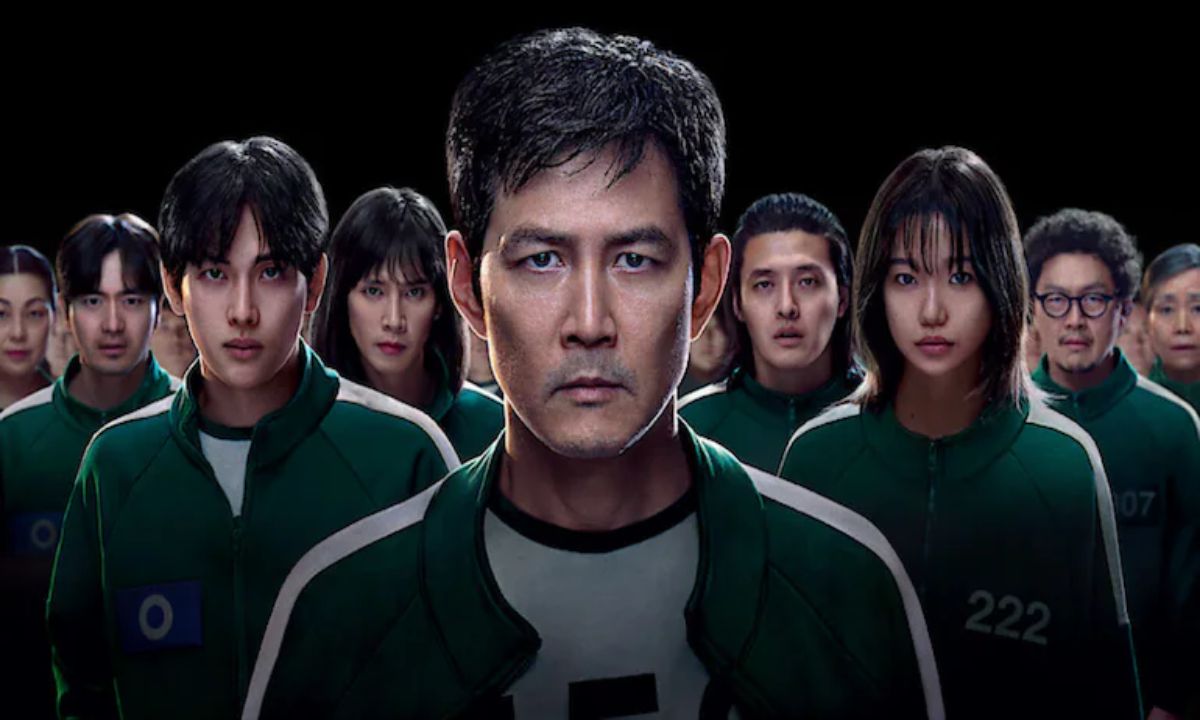Squid Game Season 3 Review: A Visceral Finale That Balances Brutality, Emotion, and Social Critique
Netflix’s global phenomenon Squid Game returns for its highly anticipated third and final season, once again diving headfirst into a twisted world where survival comes at the cost of morality. Under the visionary direction of creator Hwang Dong-hyuk, the season delivers an emotionally charged and visually stunning conclusion that stays true to the show’s core themes—albeit not without some missteps. With Lee Jung-jae reprising his role as the emotionally tormented Gi-hun, Squid Game Season 3 offers both a fitting send-off and a searing commentary on systemic cruelty.
The Return to the Arena: Gi-hun’s Fractured Crusade
Season 3 opens with an immediate continuation of the previous season’s explosive finale. In the blood-soaked corridors of the game’s secretive facility, Gi-hun stands amidst chaos, visibly broken by the death of his ally Jung-bae (Lee Seo-hwan). What once was a fiery protagonist becomes a man plagued by grief and moral confusion. Lee Jung-jae delivers a career-defining performance, navigating the emotional complexity of a man trying to dismantle a system that seems impossible to destroy.
Rather than casting him as an untouchable hero, the show presents Gi-hun as a deeply flawed yet empathetic character. His moral struggles—especially in confrontations with former ally Dae-ho (Kang Ha-neul), who abandoned the rebellion—give the season its emotional spine. As the two clash in a suspense-filled cat-and-mouse game, Dae-ho evolves from a likable side character into a morally grey figure, adding emotional and psychological layers to the narrative.
The Games Intensify: When Innocence Meets Bloodshed
In a franchise built on perverse reimaginings of childhood games, Season 3 raises the stakes with what may be its most haunting trial yet: a savage twist on hide-and-seek. Unlike earlier games that allowed room for cleverness or empathy, this challenge forces players into outright violence. With real weapons in hand and life-or-death decisions at every turn, the game offers one of the series’ rawest depictions of desperation.
This scenario delivers powerful moments of heartbreak and character revelation. Park Sung-hoon shines as Hyun-Ju, a fan-favorite trans combatant whose emotional depth and physical prowess are on full display. The brutality of the game forces players to abandon any remaining illusions of heroism, emphasizing one of Squid Game’s enduring lessons: intentions mean little in a world rigged for destruction.
The VIP Problem: Style Over Substance
While much of Season 3 hits its mark, not all of its elements gel seamlessly. The return of the wealthy VIPs—previously glimpsed in Season 1—is a misstep that undermines the show’s otherwise taut pacing. These masked spectators, now disguised as guards, are given more screen time, but their cartoonish behavior and cringe-inducing dialogue feel disconnected from the emotional gravitas surrounding them.
Rather than deepening the series’ critique of wealth and power, the VIPs’ expanded presence often serves as filler. Their observations, often redundant and shallow, distract from the core drama. However, this subplot introduces a shocking twist when Jun-hee (Jo Yuri) gives birth mid-game, and the VIPs bizarrely vote to make the newborn a player. The computer-generated baby may stretch believability, but the narrative move is chilling—a stark metaphor for the intergenerational trauma perpetuated by broken systems.
A Final Faceoff: Morality Meets Mayhem
As expected, the season builds toward an epic climax between Gi-hun and the morally complex crypto magnate Myung-gi (Yim Si-wan). Their confrontation is less about physical dominance and more about ideological contrast, representing opposing views on survival in a morally bankrupt world. The final game, laced with stunning cinematography and gut-wrenching symbolism, is a showcase of everything that makes Squid Game unforgettable—cinematic artistry, emotional stakes, and sharp social critique.
Hwang Dong-hyuk resists the temptation to tie everything up with a neat bow. Instead, the finale is messy, tragic, and unsettlingly realistic. The decision to forgo a tidy resolution in favor of a more ambiguous ending underscores the show’s central thesis: in a world governed by inequality, there are no true winners.
A Baby, a System, and a Haunting Message
The inclusion of the newborn child as a contestant, while initially absurd, becomes a powerful symbol of inherited trauma. The baby’s fate lies not in nurturing hands but in the whims of a system built on exploitation. In this way, Squid Game moves beyond individual narratives to make a chilling commentary on generational damage and societal decay.
The closing moments of the series, featuring a high-profile cameo and a possibly open-ended twist, leave viewers questioning whether the story is truly over. Yet, despite the tease of potential continuation, Squid Game Season 3 feels like a conclusive statement. It reminds us that the spectacle of suffering, when commodified, will always demand more—even when there’s nothing left to give.
Verdict: A Flawed But Fierce Farewell
⭐ 8.5/10
Squid Game Season 3 isn’t perfect—its flaws, especially the awkward integration of the VIPs, do detract from the narrative at times. But the core strengths remain intact: powerful performances, imaginative (and horrifying) game design, and a deeply resonant message about humanity under pressure. Lee Jung-jae delivers an emotionally raw conclusion to Gi-hun’s arc, anchoring a season that explores not just the cost of survival, but the soul-crushing reality of living in a rigged world.
This final chapter doesn’t aim to comfort. Instead, it challenges, confronts, and devastates—just as Squid Game always has. In the end, the show lives up to its legacy, walking the dangerous tightrope between entertainment and critique, and leaving viewers haunted long after the final game ends.

